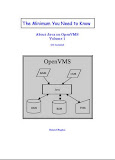Texas Indiana II
The novel, Texas Indiana II, is the second story developed from the author’s first book, Ripples in the Wind. The plot continues to chronicle the struggles and challenges facing a wealthy Indiana family. The story focuses on Barbara Callahan, a successful and wealthy businesswoman coping with the loss of her husband. Under the guidance of her retiring father Raymond Morrison, she accepts the position as CEO of her father’s corporation; Morrison, Inc. Barbara strives to overcome the obstacles that confront her and her family. Barbara must balance her role as head of the family and CEO of a powerful business. She struggles to find her inner strength to overcome the challenges that come with her responsibilities.
In the business world, Barbara must prove herself competent in the eyes of those questioning her new position. In her family, she struggles with the maternal instinct to protect her children and allowing them to confront and resolve their own problems. Her son James finds himself tackling alcoholism and the challenges he faces as he fights to save his family. Her daughter Jennifer, a smart woman businesswoman, but naïve in matters of love, faces a relationship that proves to be a danger to her and her family.
As the CEO of Morrison Inc, Barbara is confronted with those seeking to control her and her company. As she uncovers a sinister plot from within to steal from the company by individuals seeking to keep the truth from her at any cost, she faces a threat with potentially fatal consequences. Barbara and her family become embroiled in dangerous plots designed to hurt her family and business.
Texas Indiana II tells a tale of love, loss, intrigue, and suspense that tests the endurance of a family confronted with external and internal influences threatening to destroy their lives. Extortion, revenge, betrayal, and greed, are key plots accompanying the many twists and turns throughout the story. It is a charming and enthralling tale of self-reliant growth of a woman in the face of the many obstacles seeking to ruin her corporation and family. I highly recommend Texas Indiana II to readers who enjoy a well-written and engaging story of growth and survival.
Write Field Services
Paperback: 364 pages
Publisher: Authorhouse (December 30, 2005)
ISBN-10: 1420894064
ISBN-13: 978-1420894066
Available: BN.com and Amazon.com






